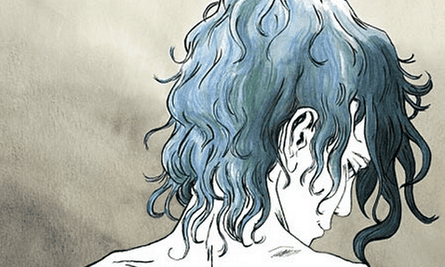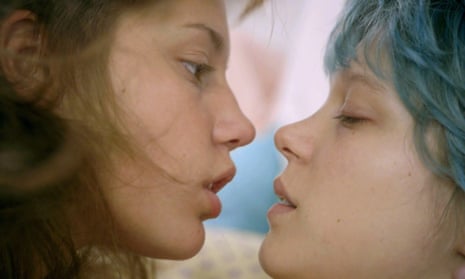An Iranian poet who translated the prize-winning French graphic novel Blue Is the Warmest Colour into Persian has claimed she is the target of a smear campaign in Iran for supporting homosexuality, punishable in the country by 100 lashes or even death.
A group of hardline Iranian news websites have attempted to discredit Sepideh Jodeyri for the Persian translation of Julie Maroh’s 2010 graphic novel, about a lesbian romance between two young women in France. The film adaptation of Blue is the Warmest Colour won the Palme d’Or at the Cannes film festival in 2013.
Aviny Film, a conservative website, said homosexuality was a “new plague in the west”. It added: “Jodeyri has spoken in support of homosexuality … how can we let such a person publish other works for readers in Iran?”
Farhang News wrote: “Sepideh Jodeyri has translated a prominent book, which has been published in support of homosexuals. She has also given interviews to anti-revolutionary websites about her work … such actions are questioning the values of our society.”
Jodeyri, who is based in Prague and is also a prominent poet, said she has been distressed by the criticism her translation, Abi Garmtarin Rang Ast, had received in Iran, where the gay, lesbian, bisexual and transgender community face systematic persecution.

“I’ve been declared persona non grata in my own country,” Jodeyri said. “An event organised [in Tehran] for my recent poetry collection And Etc was cancelled, the organiser was sacked from his job, my publisher was threatened with having his licence suspended and interviews were withdrawn, all because of the negative publicity in the conservative media around my translation of Maroh’s book.”
The Iranian news website Raja News questioned how “a person with such beliefs” had been able to “use government resources to hold an event for her book ... The relevant authorities are expected to prevent that.” According to Farhang news, the cancelled launch raised serious questions for the country’s culture minister.
Blue Is the Warmest Colour has no chance of being printed inside Iran, where all books are vetted before publication by the ministry of culture and Islamic guidance. Widespread censorship in the country has prompted many authors and translators such as Jodeyri to release their work online or go to foreign-based publishers.
Jodeyri’s translation has been released by Naakojaa, an Iranian publishing house in France, but can only be bought in digital format in Iran.
Maroh has spoken out in support of Jodeyri, urging her fans to show solidarity with her fellow-writer. In a post on her website, the French author said the media campaign against the translator was unacceptable.
“It is unbearable to me that such events go uncommented on,” Maroh wrote. “This is one more infringement on our liberty of writing, reading, communicating and above all: loving.”
Homosexuality is punishable by death in Iran, according to fatwas issued by almost all of the country’s clerics. Until recently, lavat (anal sex between men) was punishable by death.
Under new amendments to the penal code, the person who takes the “active” role will be flogged 100 times, while the one in the “passive” role will be put to death. Women engaged in same-sex acts will face 100 lashes.
Mohammad-Javad Larijani, secretary general of Iran’s state-run high council for human rights, said in 2013 that “promoting homosexuality is illegal and we have strong laws against it”. He also said at the time: “We consider homosexuality an illness that should be cured.”
Despite the penalties for gay people in Iran, the underground LGBT community in the country is thriving and has won praise worldwide for defying draconian legislation.

Comments (…)
Sign in or create your Guardian account to join the discussion